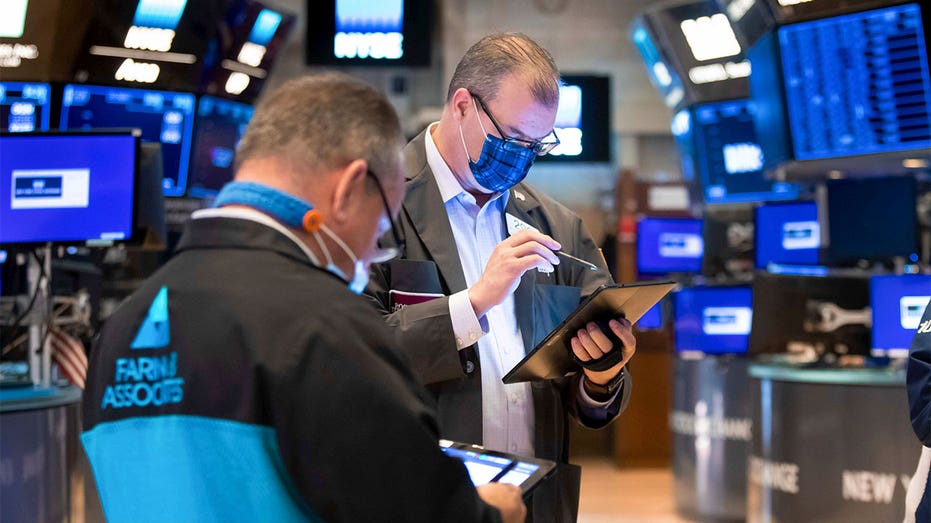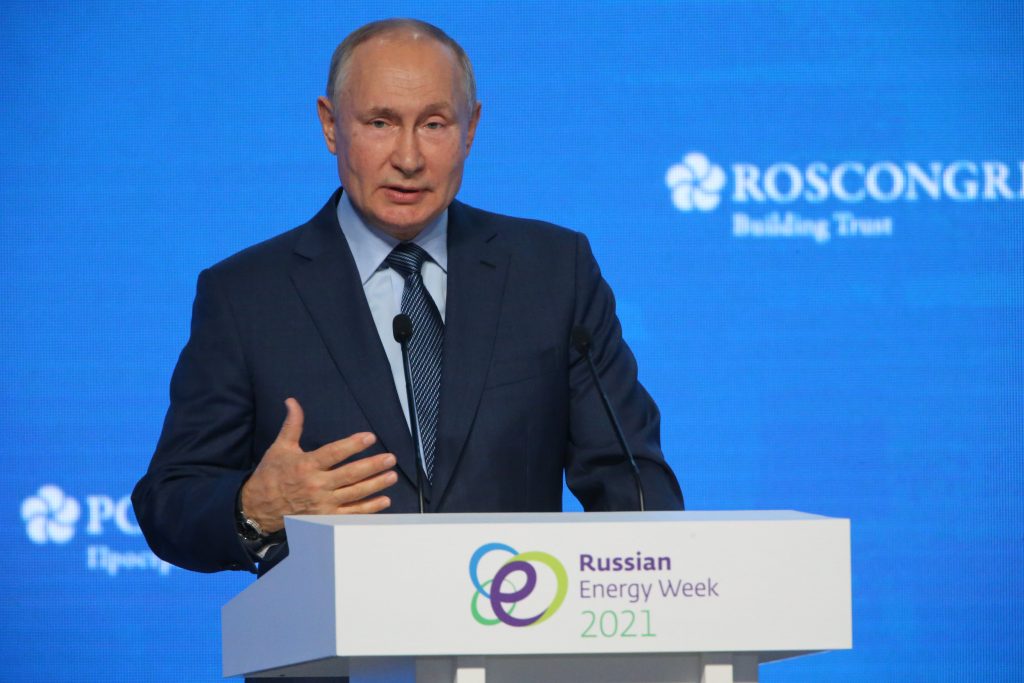Check out what’s clicking on FoxBusiness.com.
U.S. equity futures were trading higher ahead of the release of more third-quarter earnings from some of the biggest financial and health care heavyweights.
Stocks in this Article
$34377.81
-0.53 (-0.00%)
$4363.8
+13.15 (+0.30%)
$14571.635192
+105.71 (+0.73%)
Bank of America, Citigroup, Wells Fargo and Morgan Stanley were all expected to release earnings reports Thursday. In addition, watch for numbers from health care heavyweights and Dow members UnitedHealth Group and Walgreens Boots Alliance.
On Wednesday, the S&P 500 rose 0.3% to 4,363.80. The Dow ended flat, slipping 0.53 points to 34,377.81. The tech-heavy Nasdaq gained 0.7% to 14,571.64. Small company stocks also rose. The Russell 2000 index added 0.3% to 2,241.97.
TEXAS-BASED SOUTHWEST, AMERICAN TO ABIDE BY BIDEN VACCINE MANDATE DESPITE GOV’S BAN
Investors got more insight into the U.S. Federal Reserve’s next policy moves after the central bank released the minutes from its policymakers’ meeting last month.
Fed officials agreed at their last meeting that if the economy continued to improve, they could start reducing their monthly bond purchases as soon as next month and bring them to an end by mid-2022.

Bank of America, Citigroup, Wells Fargo and Morgan Stanley. Also watch for numbers from health care heavyweights and Dow members UnitedHealth Group and Walgreens Boots Alliance. Nicole Pereira/New York Stock Exchange via AP (Nicole Pereira/New York Stock Exchange via AP / AP Newsroom)
Investors took the latest update on inflation in stride. Consumer prices rose 5.4% in September from a year earlier, matching the highest rate since 2008. That was slightly higher than economists expected. Many businesses are dealing with supply chain disruptions and delays amid rising demand for goods, and are warning that will increase costs and crimp their financial results.
“There’s a lot of nervousness and anxiety about inflation right now,” said Kristina Hooper, chief global market strategist at Invesco. “We’re going to see a lot of volatility and shifts in leadership; that’s just part of the transition period we’re in.”
As companies raise prices to offset higher shipping and raw materials costs, analysts are concerned higher prices could stall consumer spending, the key driver for economic growth. The latest report from the Labor Department showed that costs of new cars, food, gas, and restaurant meals all jumped in September.
Investors will get more data on U.S. consumer spending on Friday when the Commerce Department reports retails sales for September.
Meanwhile, Asian shares were mostly higher on Thursday, tracking an overnight rally on Wall Street as investors sought out bargains, including technology stocks.
HUGE SOCIAL SECURITY PAYMENT INCREASE COULD HAVE DEVASTATING CONSEQUENCE
Benchmarks rose in Tokyo, Seoul and Sydney. Markets in Hong Kong were closed for a holiday.
The Shanghai Composite index was little changed, at 3,561.91, after the government reported a surge in producer price inflation, which rose to a record 10.7% over a year earlier in September from 9.5% in August.
Much of the increase was due to surging coal prices, which appear not to have fed into consumer prices even as parts of the country contend with power shortages, Capital Economics said in a report. Consumer price inflation slipped to 0.7% from 0.8% in August.
Also Thursday, the Monetary Authority of Singapore raised a benchmark interest rate, citing price pressures. The move to allow the Singapore dollar to appreciate slightly against the U.S. dollar, widening the trading band from 0%, coincided with news that the city-state’s economy grew at a 6.5% annual pace in July-September.
CLICK HERE TO READ MORE ON FOX BUSINESS
Japan’s benchmark Nikkei 225 added 1.4% in afternoon trading to 28,531.45 as its new prime minister, Fumio Kishida, dissolved parliament ahead of an Oct. 31 general election. In office for about a week, Kishida has already flipflopped on major policies. But a splintered opposition means the ruling Liberal Democratic Party may still have an advantage, despite growing public disenchantment over a stagnating economy and the government’s coronavirus measures.
South Korea’s Kospi jumped 1.1% to 2,975.82. Australia’s S&P/ASX 200 added 0.5% to 7,311.70. Hong Kong’s trading was closed for a holiday.
“Asian equities rose on Thursday, following a positive handover from Wall Street where tech and growth sectors outperformed,” said Anderson Alves of ActivTrades.
In energy trading, benchmark U.S. crude edged up 54 cents to $80.98 a barrel in electronic trading on the New York Mercantile Exchange. It lost 20 cents to $80.44 on Wednesday. Brent crude, the international standard, rose 57 cents to $83.75 a barrel.
GET FOX BUSINESS ON THE GO BY CLICKING HERE
In currency trading, the U.S. dollar rose to 113.58 Japanese yen from 113.23 yen. The euro cost $1.1590, inching down from $1.1593.
___
AP Business Writers Damian J. Troise and Alex Veiga contributed.


